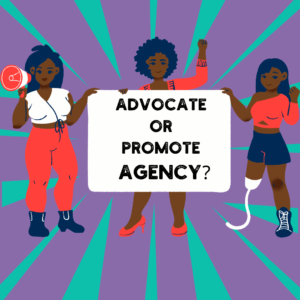
A recent docu series podcast about Environmental Justice, “Help This Garden Grow” (link below) touched on many important things that we highly recommend you taking the time to listen to.
One of the things in the last episode that popped out was a few words from a resident of the community in which the docuseries is based on, Altgeld Gardens. He talked about people outside the community coming in to show support by advocacy but not by promoting agency. And that’s a substantial difference in support.
You maybe thinking, what is advocacy and what is promoting agency…..? Keep reading and hopefully we will be able to figure this out together.
To start off, just note that in life Agency is a RIGHT! It is basically what we all deserve.
Agency over our bodies, our food, our home, our education, our WATER, our environment, our communities.
We’ve been fortunate here at SBF to have been able to travel a great deal. And the way we like to travel is not about focusing on seeing tourist attractions (there’s nothing wrong with that by the way, we do actually see some on our travels). Our focus is usually with connecting with the people, land and even animals of where we are visiting. Seeing how they live, what they feel, what they believe, what they EAT!!!!! In our younger years we may have visited places where we saw the issues of that particular community and thought we knew the solution, which is totally a normal colonized reaction. So unashamedly we advocated for the changes we thought were best. Now we are older and listen more than we speak, it’s clear that is not the way.
People in communities don’t need people coming in from the outside and telling them how to fix their issues. There’s usually quite a few elders (old and young) who know the solution(s), but they just don’t have the means to fulfill them. Quite possibly because the means that they could possibly have are being used by advocates.
So what do we do about this?
First, we listen. We read and listen to the words being said from inside that community. They are well aware of their issues and as said before, they have an idea of how to fix them. Second, we can ask them how we can help, but we must be humble and know our place is to support, not to take over. Third, use whatever privilege we have. If we know people who know people, make introductions. Connections and money rule the world sadly, so help make connections. Fourth, if we have the means, donate. Fifth, if we don’t have the means, be sure to share and educate others on the issues and also volunteer our skills to help the movement. Sixth, sign all petitions, email and call the government representatives. Seventh and etc, protest, boycott, divest, etc, make art to talk about the movement, pray, meditate, manifest…. There are myriads of ways to help.
Another way to help is to talk within the community and see if there are people within who want to go to school and get the proper education to address their community’s issues. If so and those people don’t have the means, we should do all that we can to support them. Whether it’s fundraising, sponsoring, mentoring, offering to help with applications, driving them to work, to meetings, to class. Offering a spare room to cut down on school costs, paying for their books, etc.
We have got to think and act as a community, even if it’s for people outside of our own community.
And listen! Amplify! Be an agency supporter, not an advocate.
Story time!
About 11 years ago, I heard a story from an american woman who was living and working in Tanzania. She was talking about the work she had done over the years and mentioned how in the beginning, one of the projects was to bring plumbing to a village.
After months of planning and gathering the money for the pipes and labor, they successfully brought water into a few homes as well as the center of the village. They were so pleased with themselves and even had a village celebration. Everyone seemed so happy and grateful.
A few months later they went back to check on the village and were shocked to find that there was no water. The villagers had dug up the pipes and used them to build things that they actually needed. The americans were so angry and confused. Not understanding why these villagers weren’t overly grateful to them for fixing their water issues.
The elders came and spoke to them and it was then that the americans realized that they had never actually asked the villagers what their problems were and how they could aid in fixing them. They just assumed that not having access to water was a huge issue because it is in so many parts of the world, but not for this particular village.
So next time we see a problem outside of our village, ask a few locals what they think are their biggest problems and wait for their solutions. You may just learn something and decolonize your mind.
Much love!
To listen to the podcast, go to